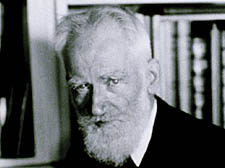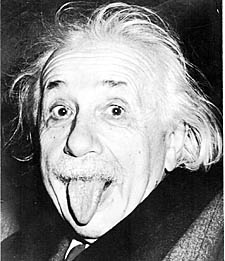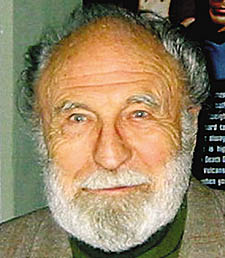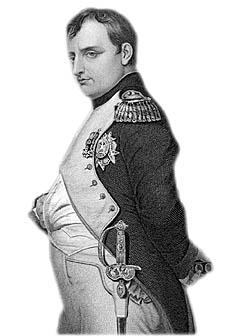
George Bernard Shaw

Albert Einstein

Barry Morse |
The rare recording of George Bernard Shaw
In 1930 the playwright George Bernard Shaw presented a toast to Albert Einstein at the Savoy hotel. His speech, recorded for posterity, is to have a rare public airing, writes Dan Carrier
SEPTEMBER, 1935: A dingy back room at the Royal academy of Dramatic Art in Gower street, Bloomsbury.
The world famous playwright George Bernard Shaw was not worried about getting his suit dirty. He lay full length down on the grubby floor boards and waggled his legs in the air.
He turned to the assembled group of students, suitably stunned at what the polymath was doing, and said to one in particular: “Mr Morse, if you are appearing as the Lion in my play Androcles and the Lion, then this is how you lie on your back as a Lion who wants his tummy tickled.”
The student was Barry Morse, and he was later to find fame as Detective Lieutenant Philip Gerard in the long-running television series The Fugitive.
Morse was inspired by the visit, and now, aged 88, is the chairman of the Shaw Society, a body dedicated to promoting the playwright’s works and philosophy.
And this Friday, a rare recording of the playwright giving a toast to Professor Albert Einstein at a dinner in honour of the scientist, is due to be played in public for the first time.
The speech, made at the Savoy Hotel in 1930, was handed to the Society’s Terry Mullins by a rare disc collector. On it is a voice from 76 years ago, praising the work of the scientist.
Mr Morse said listening to the speech will bring back memories of forging a friendship with the playwright.
He added: “He visited us regularly at the Academy. He wanted to know what the students were getting up to, what they were thinking. He didn’t really appear as one of the members of the Rada board. He was charming and knocked about like an entertaining young man, not one of the world’s most important and serious thinkers.”
And Mr Morse believes that Shaw’s ability to speak in public is one of the reasons he made such a good playwright – a fact the recording the Society is presenting clearly shows.
Shaw was heavily involved in politics – he was a St Pancras councillor from 1897, and became a beacon for socialists up to his death, which meant he was frequently asked to speak in public.
Mr Morse continued: “He had a beautiful voice and he kept a slight Irish accent. He learnt public speaking the hard way, confronting hecklers at Speaker’s Corner, and addressing crowds in pub parlours.”
But he did not address the society, established before his death, that bears his name.
Shaw had refused to have anything to do with them – making the speech even more interesting.
Mr Morse said members were excited to be able to hear the man they met to discuss addresses them – even if it was posthumously.
Shaw was unhappy the Shaw Society had been set up and refused to give the idea his blessing.
He wrote to founding member Dr Fritz Loewenstein: “The Browning Society was a terror to Browning. Shelley was dead, Shakespeare was dead, I shall soon be dead. We all provided a rallying point for the co-operation and education of kindred spirits and a forum for their irreconcilable controversies.
“So go ahead, but don’t bother me about it. I am old, deaf, and dotty. In short, a has been.”
But the speech for Einstein shows Shaw at the height of his powers.
The recording was made on a Shellac 78” record while Shaw spoke – it means there is a break in the middle while the record was turned over. The audience break into regular bouts of laughter as his witticisms hit home.
And the audience will hear two other recordings the playwright made. He was as interested in music as he was the theatre – coupled with his enthusiasm for new technology, he wanted to investigate recording techniques.
Mr Morse continues: “Shaw went to the HMV studios in Hayes, Middlesex, and they encouraged him while he was having a tour to make a recording – so he read the opening speech from Richard the Third, about ‘the winter of discontent’.” The final recording is a talk by Shaw in the 1920s to promote English.
But when Shaw heard the results, he was shocked.
Mr Morse added: “He did not know what his voice sounded like – he had never heard himself speak – and he said that’s not me, there must be some mistake. That’s an Irishman.”

Better not Born: Napoleon |
Why the great and the good are ‘six a penny’
THE Einstein speech was at a dinner organised by two Jewish organisations – ORT, an educational institute that has a branch in Camden Town, and the OZE, which was the Society for the Protection of Jewish Health.
It went on for more than half an hour and covered a diverse number of subjects including the marriage of art and science, religion and Newtonian ideas.
The speech starts with an admission that he is not keen on making toasts to “the great”, although with Einstein, he was thrilled.
He said: “When my friend Mr HG Wells asked me to take this duty I could not help wondering whether I was able to discharge it adequately.”
He continues to say that in London the supposedly great and good are ‘six a penny.’
But Shaw says Einstein stands out among the multitude – and uses this fact to attack dictatorships and the European quest for empire.
He says: “If you take the typical great man of our historic epoch and suppose that I had to rise here tonight to propose a toast to Napoleon – well, undoubtedly I could say many flattering things about him. What I should not be able to say would be perhaps the most important thing, and that was that it would perhaps have been better for the human race if he had never been born.
“Napoleon and other great men of his type, they were makers of empire, but there is an order of men who get beyond that. They are not makers of empires, but they are makers of universes.
“And when they have made those universe, their hands are unstained by the blood of any other human being on earth.
“They are very rare: I go back 2,500 years and how many of them can I count in that period? I can count them on the fingers of two hands: Pythagoras, Ptomley, Aristotle, Copernicus, Kepler, Galileo, Newton, Einstein… and I still have two fingers vacant.”
CLICK BELOW TO SEARCH FOR ACCOMODATION
|